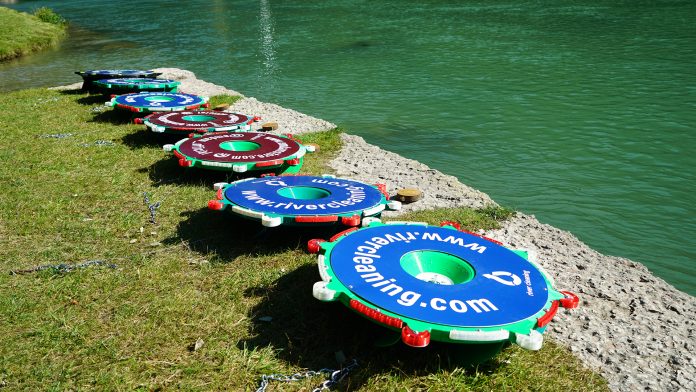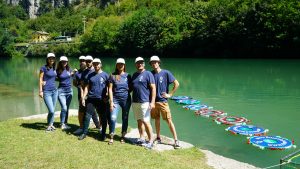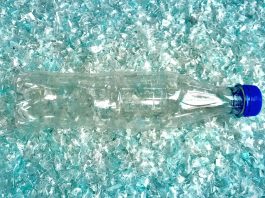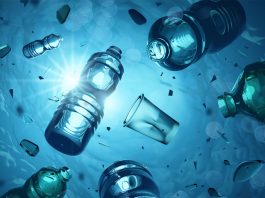A new innovative system developed in Italy prevents plastic waste from entering the sea by cleaning rivers before the pollutant enters the ocean, whilst also allowing navigability and having no detrimental effect on river flora and fauna.
Every year, millions of tonnes of plastic waste are discharged into the oceans via rivers. About 90% of the plastic comes from only ten major rivers in Asia and Africa: Yangtze, Huag He, Hai He, Zhujiang, Amur, Mekong, Indus, Ganges, Nile, and Niger. Cleaning rivers and minimising the amount of plastic waste entering our environment is a duty owed to both the welfare of the people who live in those areas and for the entire planet.
In 2015, the United Nations compiled 17 Sustainable Development Goals (SDGs) which it hopes will be achieved by 2030. These points are at the core of the Agenda for Sustainable Development, adopted by all UN member states. They are a call to cross-cutting action: from organisations to individuals, and from multinationals to nations. The 17 SDGs act as a single project and look forward to a world with better health and education, reduced inequalities, greater sustainable economic growth, and a protected environment.
A solution to plastic waste in rivers
The problem of plastic waste that is not disposed of properly is fully addressed in SDGs 6 (Clean Water and Sanitation), 12 (Responsible Consumption and Production), 14 (Life Below Water) and 15 (Life on Land). Many international studies have shown that the problem of plastics involves all countries around the world both from an economic, health and environmental point of view.
In an effort to combat the plastic waste problem the River Cleaning System team have developed the innovative River Cleaning System for the collection of plastic waste floating along watercourses. This solution consists of a series of floating devices, positioned diagonally on the course of the river; thus positioned, they intercept plastic waste and transport it to the riverbank, in a special storage area. Thanks to the water current, the waste is diverted from the modular barrier and brought to the appropriate collection point. The system therefore does not require any other energy source and does not produce any kind of waste. Indeed, River Cleaning is designed to have a reduced impact on the eco-system: fauna and flora do not suffer stress from the system.
Autonomy
Each of the floating devices is autonomous and their underwater anchorage means that they can move to allow the transit of boats without them changing course. The patented system enables each device to return to its position after the passage of a boat.
The structure of the single units has been designed so that they can be exposed to different types of boats with different sizes without being damaged. Solutions are also provided in case of emergency: for example, in the case of a buoy detaching from the anchorage, a GPS locator will track it and a designed operator will retrieve it.
Tried and tested
“Through conducting physical simulation tests with professional software and field tests of prototypes, we have been able to estimate that the River Cleaning System is 100% scalable, can operate 24/7, and guarantees 85% efficiency in the collection of plastic waste. The level of efficiency rises to 95% if we consider only floating plastic waste,” explained Vanni Covolo, CEO of River Cleaning.
The River Cleaning System is therefore an innovative, unique, and efficient with a low environmental impact solution, able to adapt to any watercourse.
Scaling up
In order to develop such an important project like River Cleaning, with its clear economic value, to the global scale, collaborations between institutions and private companies will be essential. The participation in or purchase of this project by private individuals certainly represents a profitable investment that aims at achieving a real change in current production paradigms whilst also generating an important economic return. For this purpose, River Cleaning is looking for an investor with great economic potential to purchase the patent.
Raising public awareness about the issue of plastic waste is essential to push governments around the world to take concrete action. The European Union is already moving in this direction, with large projects related to the preservation and protection of marine environments already being funded.
The River Cleaning team hopes that this project will contribute as soon as possible to eliminating plastic waste from waterways so that the long-term plastic problem in our oceans is contained and, finally, eliminated.
In the meantime, the River Cleaning team is also working on developing and implementing other parallel projects designed to aid the cleaning of water from various polluting components, such as those witnessed in oil spills.
Vanni Covolo
CEO & Owner
River Cleaning
+39 0424 881323
info@rivercleaning.com
www.rivercleaning.com
Please note, this article will also appear in the fourth edition of our new quarterly publication.






